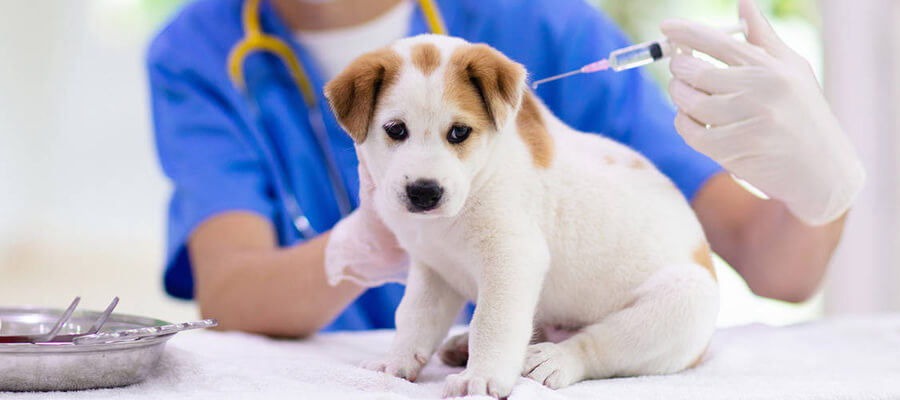
5 Essential Vaccines Every Dog Should Have
5 Essential Vaccines Every Dog Should Have for Optimal Health
Introduction
Vaccination is one of the most crucial aspects of preventative care for dogs. It helps protect them from various diseases that can be serious or even fatal. Understanding which vaccines are essential for your dog's health is vital for every dog owner. This guide highlights the five essential vaccines that every dog should receive to ensure their well-being.
1. Canine Parvovirus (CPV) Vaccine
What is Canine Parvovirus
Canine Parvovirus is a highly contagious virus that attacks the gastrointestinal tract of dogs. It can lead to severe vomiting, diarrhea, and dehydration, which can be fatal, especially in puppies.
Essentials for Your Newly Adopted Pet
Welcoming a shelter pet into your life is a beautiful journey. Here are some handpicked items to help your new friend feel safe, loved, and right at home:
Why Vaccinate
- Prevention: Vaccination is the best way to protect against this virus.
- Community Health: Keeping your dog vaccinated helps reduce the spread of parvovirus in the community, protecting other dogs.
Vaccination Schedule
- Puppies: The first vaccination should be given between 6 to 8 weeks of age, with booster shots every 3-4 weeks until they are about 16 weeks old.
- Adults: A booster is recommended every 1-3 years, depending on the vet’s advice.
2. Canine Distemper Vaccine
What is Canine Distemper
Canine Distemper is a viral disease that affects a dog’s respiratory, gastrointestinal, and nervous systems. It can lead to severe complications and death.
Why Vaccinate
- Highly Contagious: Distemper spreads easily through airborne exposure, so vaccination is crucial to keep your dog safe.
- Long-lasting Protection: The distemper vaccine provides long-lasting immunity, significantly reducing the risk of infection.
Vaccination Schedule
- Puppies: Administered between 6 to 8 weeks of age, with boosters every 3-4 weeks until 16 weeks.
- Adults: A booster is recommended every 1-3 years.
3. Canine Adenovirus (CAV) Vaccine
What is Canine Adenovirus
Canine Adenovirus type 1 causes infectious canine hepatitis, which can result in severe liver damage. Type 2 causes respiratory disease.
Why Vaccinate
- Comprehensive Protection: The vaccine protects against both types of adenovirus, ensuring your dog’s respiratory and liver health.
- Preventing Spread: Vaccinating helps prevent the spread of these viruses, especially in places where dogs congregate, such as parks and boarding facilities.
Vaccination Schedule
- Puppies: First vaccination given between 6 to 8 weeks, with boosters every 3-4 weeks until 16 weeks.
- Adults: A booster is typically needed every 1-3 years.
4. Rabies Vaccine
What is Rabies
Rabies is a viral disease that affects the nervous system of mammals, including dogs and humans. It is almost always fatal once symptoms appear.
Why Vaccinate
- Public Health Requirement: Vaccination is often required by law to prevent rabies transmission to humans and other animals.
- Life-Saving: The rabies vaccine is the only vaccine required by law for dogs, and it is essential for public safety.
Vaccination Schedule
- Puppies: The first rabies vaccination is typically given between 12 to 16 weeks of age.
- Adults: A booster is usually required every 1-3 years, depending on local regulations and vaccine type.
5. Bordetella Bronchiseptica Vaccine
What is Bordetella
Bordetella bronchiseptica is a bacterium that causes kennel cough, a highly contagious respiratory disease among dogs.
Why Vaccinate
- Prevention in Social Settings: This vaccine is essential for dogs that frequently interact with other dogs, such as those in daycare, boarding, or dog parks.
- Reduce Severity: While it does not completely prevent kennel cough, it reduces the severity of the disease.
Vaccination Schedule
- Puppies: Usually given at around 8-12 weeks of age, with a booster every 6-12 months depending on exposure risk.
- Adults: Boosters are often recommended annually, especially for dogs in high-risk environments.
Conclusion
Vaccinations are a fundamental part of keeping your dog healthy and safe from potentially life-threatening diseases. Regular veterinary check-ups and following the recommended vaccination schedule can significantly enhance your dog’s quality of life. Always consult your veterinarian to tailor a vaccination plan suitable for your dog’s age, lifestyle, and health status. By staying informed and proactive, you can ensure your furry friend enjoys a long, healthy, and happy life.
Affiliate Products
We may earn a small commission when you shop through our links — it helps us keep sharing love and care for every dog out there, at no extra cost to you.
Up to 75% Discount

Dog Collar with Health Monitoring
BUY NOW »
Up to 55% Discount

Luxury Faux Furhuge Napping Bed
BUY NOW »

